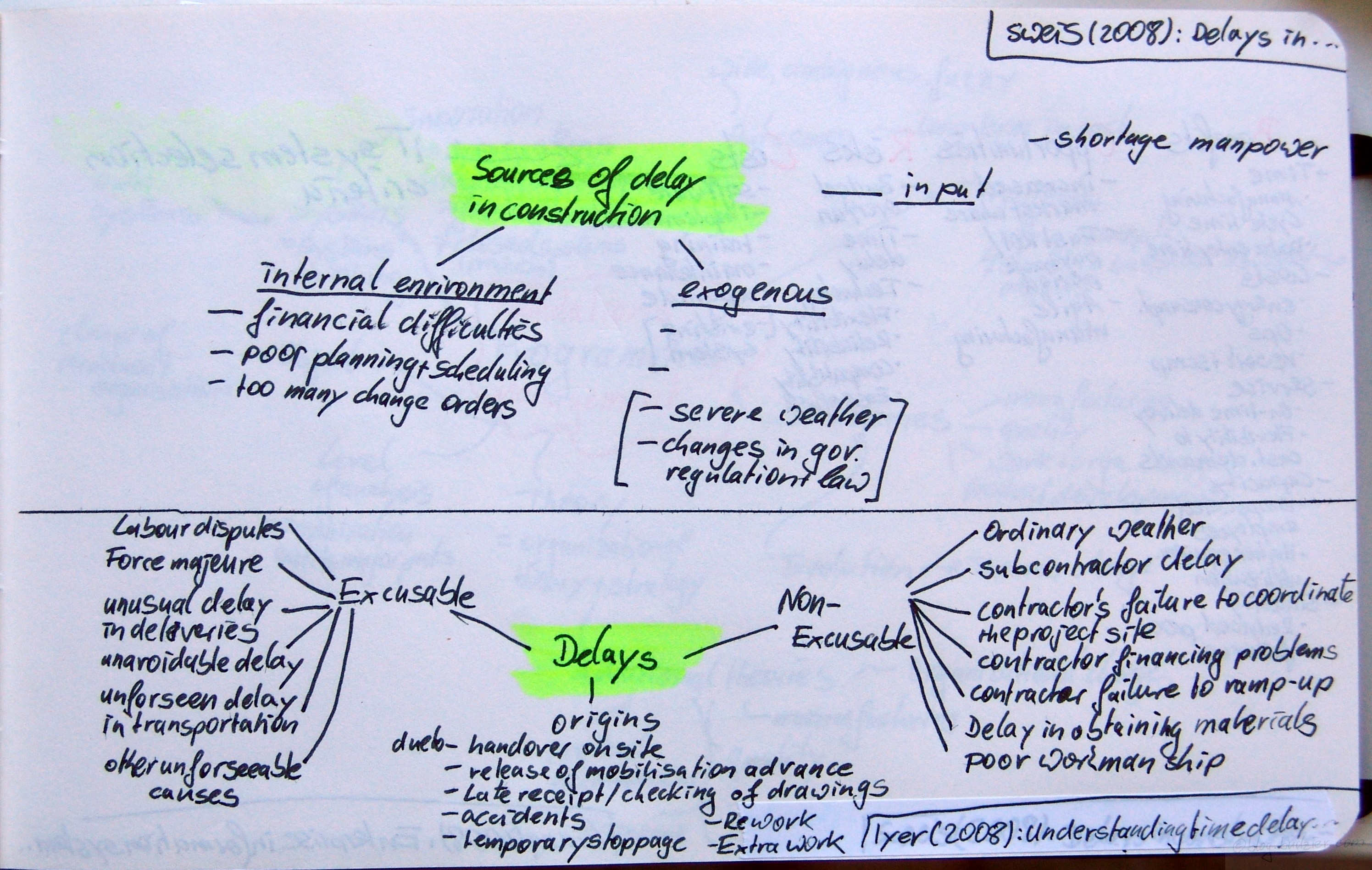Iyer, K.C.; Chaphalkar, N.B.; Joshi, G.A.: Understanding time delay disputes in construction contracts; in: International Journal of Project Management, Vol. 26 (2008), No. 2, pp. 174-184.
http://dx.doi.org/10.1016/j.ijproman.2007.05.002
Sweis, G.; Sweis, R.; Hammad, A. Abu; Shboul, A.: Delays in construction projects – The case of Jordan; in: International Journal of Project Management, Vol. 26 (2008), No. 6, pp. 665-674.
http://dx.doi.org/10.1016/j.ijproman.2007.09.009
In my recent obsession with delays [it’s quite sarcastic, I know], I read through these two articles on delays in the construction industry.
Sweis et al. analyse sources of delays on construction projects. The authors identify three main categories contributing to delays – internal environment, exogenous factors, and input factors.
Internal environmental factors are financial difficulties, poor planning & scheduling, and too many change orders. Exogenous factors found are severe weather and changes in government or regulation laws. The input factor causing delay was a shortage of manpower.
In the second article Iyer et al. look into the contractual strings attached to delays. Therefore they categorise delays in excusable vs. non-excusable. Excusable delays are
- Labour disputes
- Force majeure
- Unusual delay in deliveries
- Unavoidable delay
- Unforseen delay in transportation
- Other unforseeable causes
Non-excusable delays and therefore punishable by fines are
- Ordinary weather
- Subcontractor delay
- Contractor’s failure to coordinate the project site
- Contractor financing problems
- Contractor failure to ramp-up
- Delay in obtaining materials
- Poor workmanship
[On how many IT projects have I seen non-excusable delays which were excused.]
Lastely, Iyer et al. identify the origins of disputed delays, they were due to
- Handover on site
- Release mobilisation advance
- Late receipt/checking of drawings
- Accidents
- Temporary stoppage
- Re-work
- Extra work
